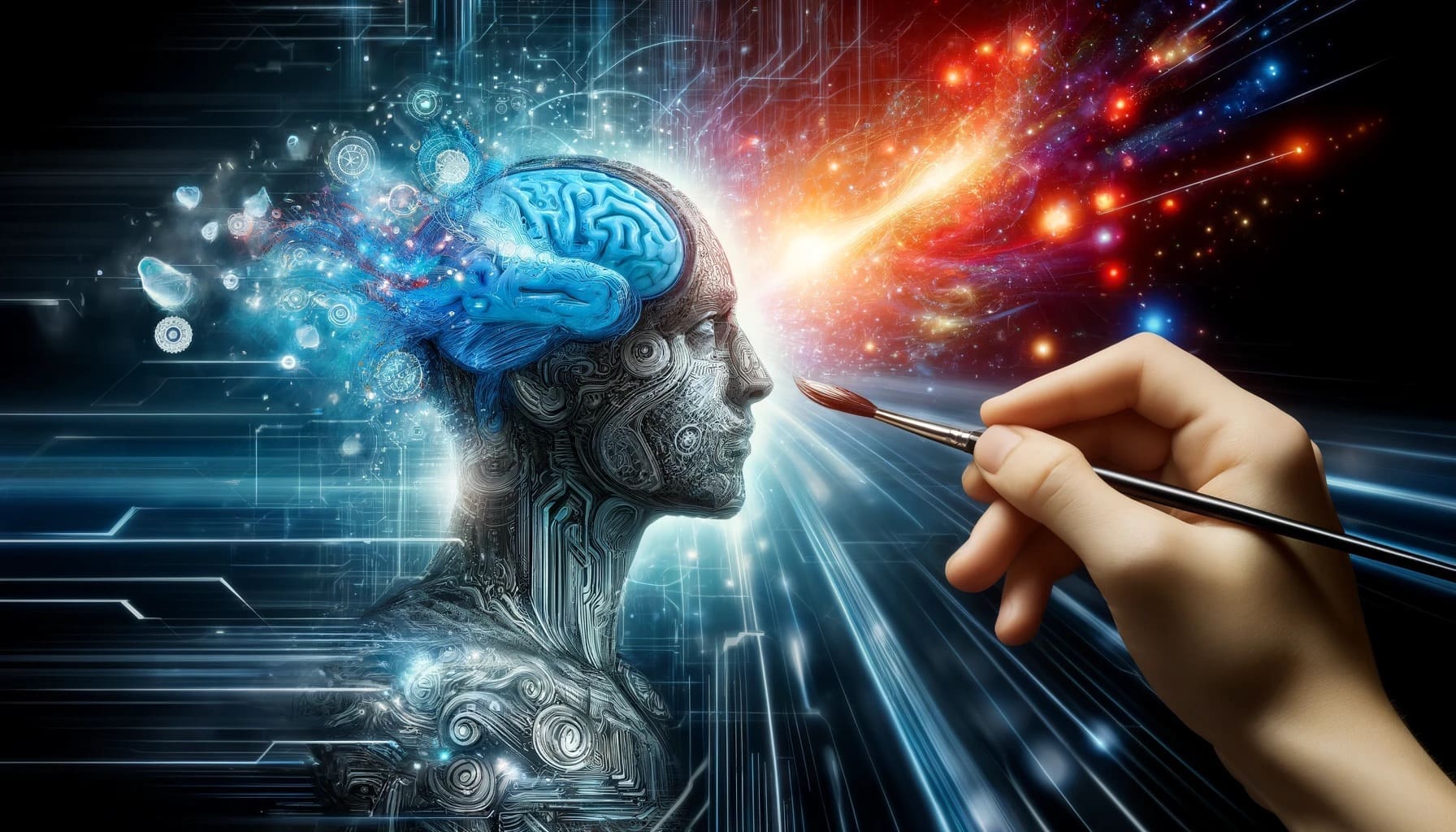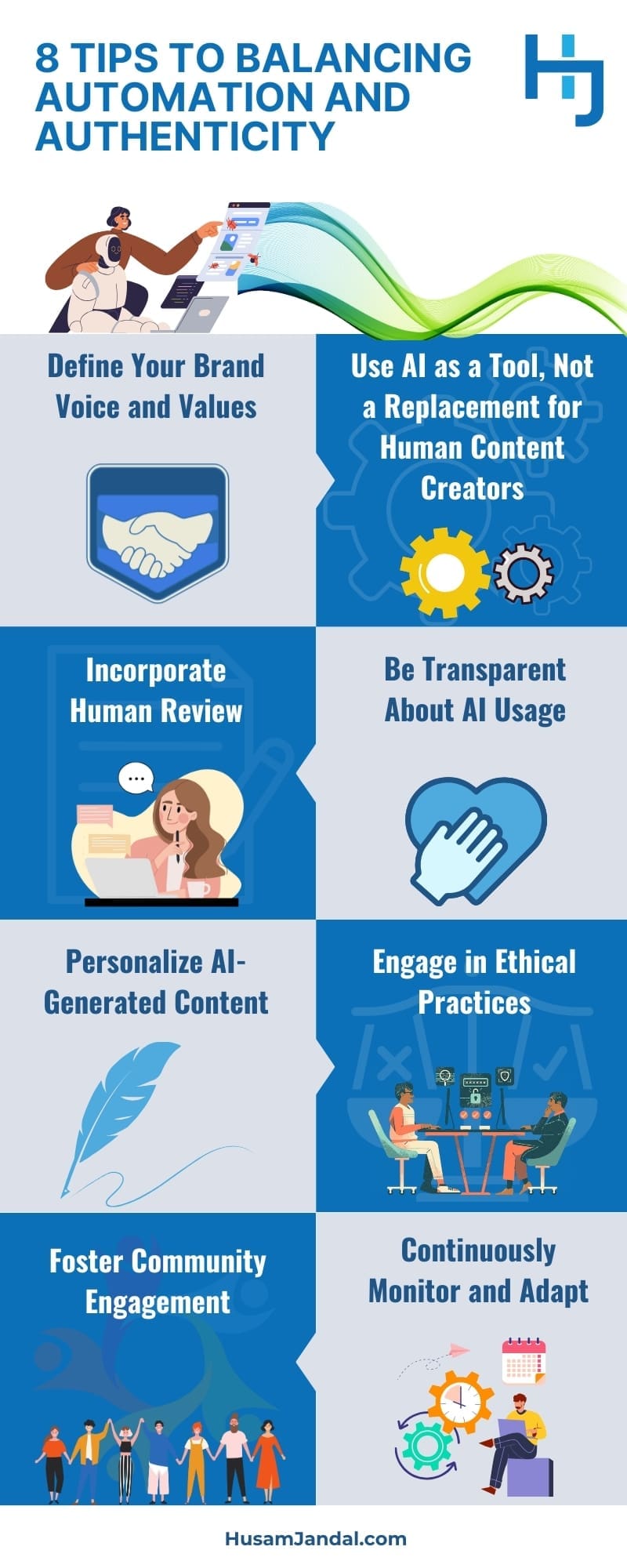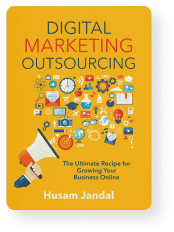 Over half of all marketers leverage artificial intelligence (AI) in the content creation process, eMarketer reports. The vast majority are enthusiastic about it, too. But, AI-generated content can come off as unauthentic, which can have major implications for brands that leverage it. On this page, I’ll walk you through the background and explain why AI should have a place in your content creation strategy, plus cover some of the pitfalls and how to ensure your AI-generated content befits your brand and audience.
Over half of all marketers leverage artificial intelligence (AI) in the content creation process, eMarketer reports. The vast majority are enthusiastic about it, too. But, AI-generated content can come off as unauthentic, which can have major implications for brands that leverage it. On this page, I’ll walk you through the background and explain why AI should have a place in your content creation strategy, plus cover some of the pitfalls and how to ensure your AI-generated content befits your brand and audience.
AI-Generated Content is on the Rise
AI market size is projected to hit almost $740 billion in 2030, a hike of nearly $500 billion in seven years, Statista reports. The remarkable growth of the AI market highlights a transformative period in technology and business. This boom is fueled by a mix of factors, including advancements in computing power, availability of large datasets, and significant algorithm improvements.
Historical Context and Evolution
AI’s journey to its current state began decades ago, with roots in the mid-20th century. However, recent advancements in machine learning (ML) and deep learning (DL) have truly catapulted AI into the spotlight. Initially, AI struggled with limitations in computational power and data scarcity. But as digital transformation swept across industries, generating vast amounts of data, and, as computational capacities expanded exponentially, the stage was set for AI’s rapid advancement.
The Shift Towards AI-Generated Content
The shift towards AI-generated content can be attributed to several key factors:
- Data Availability: The digital age has seen an explosion in data, providing the raw material necessary for training more sophisticated AI models.
- Computational Advances: Enhanced processing capabilities, through graphics processing units (GPUs) and cloud computing, have made it feasible to run complex models that were previously impractical.
- Algorithmic Innovation: Breakthroughs in neural networks, particularly in architectures like GPT (Generative Pretrained Transformer) and BERT (Bidirectional Encoder Representations from Transformers), have significantly improved the quality and versatility of AI-generated content.
How AI-Generated Content Works
Creating content with AI is like teaching a computer to write. Here’s how it works in simple terms.

- Learning from Data: Imagine teaching a computer to write by showing it millions of examples. This is what happens during the training phase, where AI models learn from vast amounts of text, picking up on language patterns and how sentences are structured.
- Getting Smarter: Just like a student specializing in a subject, AI models can be fine-tuned to become experts in specific topics or writing styles. This makes them incredibly versatile and able to produce content that’s tailored to different needs.
- Writing New Content: Once trained, these AI models are like writers with a pen, ready to create new pieces based on prompts they’re given. They use their “knowledge” to generate text that’s not only relevant but also coherent and surprisingly human-like.
Through this process, AI can help generate a wide range of content, from articles and reports to creative stories, by understanding and mimicking how humans write.
Advantages of Using AI for Content Creation
AI-generated content offers many advantages for businesses, especially for small and mid-sized companies that want to scale their operations efficiently.
Cost Efficiency
One of the greatest benefits of AI-generated content is its cost efficiency. Traditional content creation involves human writers, editors, and content managers, which can be resource-intensive and costly, especially for ongoing content needs. AI can significantly reduce these costs by automating a portion of the content production process, enabling you to allocate resources more effectively elsewhere.
Scalability
AI-generated content allows you to scale your content production without a proportional increase in time or costs. This is particularly helpful for marketing campaigns, SEO strategies, or content-driven customer engagement initiatives requiring high content volumes. AI can produce content quickly, helping you keep up with demand without sacrificing quality.
Speed and Efficiency
The speed at which AI can generate content is unparalleled. For businesses in industries where time is of the essence, such as news, event coverage, or trend-based niches, AI can produce relevant content swiftly, helping you stay ahead of the curve.
Personalization at Scale
AI technologies can analyze data to produce personalized content for different segments of your audience or personas. This ability to customize content at scale can significantly enhance customer engagement and satisfaction, driving better marketing outcomes.
Consistency and Quality Control
AI systems can maintain a consistent tone and style across all content, aligning with your brand’s guidelines. Additionally, they can help in quality control by checking for grammar, spelling, and even certain factual inaccuracies, ensuring the content maintains a high standard.
Augmenting Creativity
AI-generated content can serve as a tool for creative brainstorming, offering new ideas and perspectives that can inspire content creators. It can generate drafts, headlines, or content ideas, which your content team can refine and humanize, blending the best of both worlds.
Search Engine Optimization Alignment
AI-generated content can significantly aid in SEO (search engine optimization) alignment, enhancing a website’s visibility and ranking on search engine results pages (SERPs). For instance, it can help you identify keywords and trends relevant to your niche and audience and then assist with content creation.
Authenticity Concerns with AI-Generated Content
As AI becomes increasingly integral to content strategies, businesses must be aware of the potential pitfalls surrounding authenticity and how they can impact branding, consumer trust, and marketing results.
Loss of Personal Touch
One of the main authenticity concerns revolves around losing the personal touch or the unique voice that brands or content creators have cultivated. AI-generated content, while efficient and scalable, doesn’t always fully capture the nuances, style, or emotional tone that comes from human-created content. This can lead to content that feels generic and lacks the personal touch that engages your audience.
Transparency
As AI-generated content becomes more prevalent, there’s a growing debate around transparency. Should businesses disclose the use of AI in creating content? The concern is that failing to do so might mislead audiences who value human connection and authenticity in the content they consume. This becomes particularly delicate with sensitive topics where human empathy and understanding are crucial.
Ethical and Moral Considerations
The use of AI in content creation raises ethical questions, particularly around the creation of deepfakes, plagiarism, and the propagation of misinformation. The technology’s ability to create convincing content can be misused to manipulate facts, impersonate individuals, or create entirely fictitious yet plausible narratives, undermining public trust and credibility.
Originality and Creativity
There’s also the issue of originality. AI models generate content based on patterns and information they have been trained on, which can lead to content that, while technically new, may not be truly original or creative. This raises concerns about the potential homogenization of content across the web, as AI-generated pieces might echo existing materials rather than offer new insights or creative angles.
Brand Trust
For businesses, there’s a fine line between leveraging AI for efficiency and maintaining the trust and loyalty of their customers. Suppose customers feel that a brand is overly reliant on AI. In that case, it might erode trust, especially if the content lacks the depth, understanding, or sincerity that your customers expect from your brand.
For instance, the National Eating Disorders Association launched an AI chatbot to take over its helpline after the human department was closed, NPR reports. Rather than providing appropriate information for those with disorders, the bot began giving dieting advice and suggesting other behaviors that weren’t healthy for the audience. The bot was immediately taken down, but the organization’s reputation was already hit with potentially irreparable damage. While this example doesn’t involve traditional digital marketing content, the same can occur just as quickly with a blog post or other content without proper oversight.
Search Engine Optimization
Using AI or automation does not go against Google policies, the search engine says. However, it checks to see if content meets E-E-A-T guidelines before it decides if it ranks in search engine results pages and where it lands if it does. E-E-A-T is short for experience, expertise, authoritativeness, and trustworthiness. Based on what we’ve covered so far, you can probably see why AI-generated content can easily miss the mark here. Moreover, Google’s goal is to ensure it sends users to helpful content and websites that provide a good user experience (UX). As consumer trust erodes and people lose interest in the content being produced by a brand, Google will start to favor other content. That means publishing AI-generated content without accounting for authenticity can damage your search engine optimization (SEO), reduce the effectiveness of your digital marketing, and create long-term challenges for your company’s growth.
How to Balance Automation and Authenticity
You must balance automation and authenticity to maintain a genuine connection with your audience. Some general guidelines to help your brand achieve this are provided below.
Define Your Brand Voice and Values
Start by clearly defining your brand’s voice, style, and core values. This foundation ensures that any content, whether AI-generated or not, aligns with your brand identity. Provide detailed guidelines about tone, language, and themes important to your brand, and ensure these are reflected in the AI-generated content.
It’s okay to think outside the box when applying your guidelines. For instance, Heinz discovered that the DALL-E AI image generator always drew Heinz brand ketchup regardless of the prompt when asked to draw it. It used this for the basis of an entire campaign.
Use AI as a Tool, Not a Replacement for Human Content Creators
Treat AI as a tool to augment your content creation process, not as a complete replacement for human creativity. Use AI to generate ideas and drafts or to automate routine content tasks, but keep human oversight for final edits, ensuring the content retains the nuances and empathy that only humans can provide.
For instance, a travel business might use AI to create initial drafts for destination guides. The content team would then enrich the drafts with personal travel stories, local tips, and unique photography. This collaboration ensures the guides are not only informative, drawn from AI’s ability to process vast data, but also deeply personal and engaging.
Incorporate Human Review
Incorporate a review process where humans assess, edit, and refine AI-generated content before it’s published. This step is crucial for ensuring the content remains true to your brand voice and values, and it allows for the addition of personal insights, anecdotes, or a touch of humor that AI might miss.
Be Transparent About AI Usage
Transparency is vital to maintaining trust with your audience. Consider disclosing your use of AI somewhere on your website. Additionally, you may choose to allude to the use of AI in author bios or shift the language to indicate the person listed is an editor or co-creator rather than an author.
The content syndicate BuzzFeed offers a prime example of what this looks like in action. “We’ve paired with AI robot Buzzy to help you create the perfect shopping list in your budget,” an article notes. As expected, “Buzzy the Robot, BuzzFeed’s AI Creative Assistant,” takes second position on the by-line, right beside the human creator.

Personalize AI-Generated Content
Customization and personalization are powerful ways to enhance the authenticity of AI-generated content. Use AI to analyze audience data and preferences, then tailor content to meet those specific needs and interests. This approach demonstrates an understanding and consideration of your audience, making the content more relevant and engaging.
Engage in Ethical Practices
Adhere to ethical guidelines in using AI, especially regarding content originality and accuracy. Ensure your AI-generated content is free from plagiarism and respects copyright laws. Avoid spreading misinformation and strive for factual accuracy, underlining your brand’s commitment to integrity and trustworthiness.
Foster Community Engagement
Use AI to facilitate and enhance community engagement, not just for content creation. AI can help analyze engagement patterns and preferences, enabling you to create more of the content your audience loves. Additionally, engaging directly with your audience through comments, social media, and other channels can add a human touch that AI cannot replicate.
Continuously Monitor and Adapt
The digital landscape and AI technology are continuously evolving. Regularly review and adjust your content strategy to ensure that your use of AI remains effective and authentic. Stay informed about new AI tools and techniques that can enhance your content creation process, and be prepared to adapt your strategy as needed.
The Future of Content Creation with AI

Several key trends and innovations are likely to shape how brands and creators leverage AI for content creation going forward.
Advancements in Natural Language Generation
Natural language generation (NLG), the subset of AI focused on generating text, is expected to become even more sophisticated. Future iterations of NLG algorithms will likely produce content that is increasingly indistinguishable from that written by humans, both in terms of the depth of understanding and the subtleties of language. This will open new possibilities for creating more complex, nuanced content at scale.
Increased Personalization and Customization
AI’s ability to analyze data and learn from user interactions will allow for an unprecedented level of content personalization. Future AI systems will be capable of crafting content that is not only tailored to the individual preferences of users but also adapts in real-time based on their interactions. This hyper-personalization will enable brands to engage with their audiences in more meaningful, impactful ways.
Integration with Emerging Technologies
AI’s integration with other emerging technologies, such as augmented reality (AR) and virtual reality (VR), will create new content formats and experiences. Imagine immersive AR/VR experiences powered by AI-driven narratives that adapt to each user, offering unique, engaging content that blurs the line between reality and digital.
Ethical AI and Transparency
As AI plays a larger role in content creation, ethical considerations and transparency will become increasingly important. Future trends may include the development of standards and best practices for ethical AI use in content creation, including clear guidelines on transparency, data privacy, and the avoidance of bias. Brands will need to navigate these ethical considerations carefully to maintain trust and credibility with their audiences.
AI as a Collaborative Partner
The future will likely see AI being used more as a collaborative partner in the creative process, working alongside humans to enhance creativity rather than replace it. For instance, this might mean AI is suggesting ideas, conducting research, or providing real-time feedback to creators, to enrich the creative process and pave the way for new forms of storytelling.
Learning and Adaptability
Future AI systems will not only generate content but also learn from user feedback to continuously improve over time. This adaptability will allow AI to better understand the nuances of effective content, refine its output accordingly, and become more attuned to audiences’ evolving preferences.
How You Can Adapt
- Stay Informed: Be aware of the latest developments in AI and content creation technologies to understand how they might impact or benefit your content strategy.
- Experiment and Innovate: Be open to experimenting with new AI tools and techniques. Early adoption can provide a competitive edge and offer unique insights into effective strategies.
- Invest in Skills: As AI becomes more integrated into content creation, investing in skills and training for your team on AI tools and ethical guidelines will be crucial.
- Focus on Human-AI Collaboration: Leverage AI to augment human creativity, not replace it. This can lead to more innovative, engaging content that resonates with your audience.
Get Help Folding AI-Generated Content into Your Digital Marketing Strategy
I’ve been on the digital marketing scene since its inception. I have watched countless new technologies emerge, from user-friendly content management systems like WordPress to automated bidding in pay-per-click (PPC) ads. I’ve seen Google update its algorithm repeatedly and unveil new exciting elements such as featured snippets and knowledge panels. I’ve also witnessed more tools and technologies than I can count flop or fail, and what happens to brands that adopt too early or misuse the technology. AI-generated content will be part of digital marketing strategies for the foreseeable future and can offer a wealth of benefits for brands that understand the importance of balancing automation with AI.
If your business is ready to scale and wants to include AI as part of a cohesive digital marketing strategy, I can help. Let’s have a conversation about where your brand is today and where you want to go. Contact me to schedule a time to talk.




































































